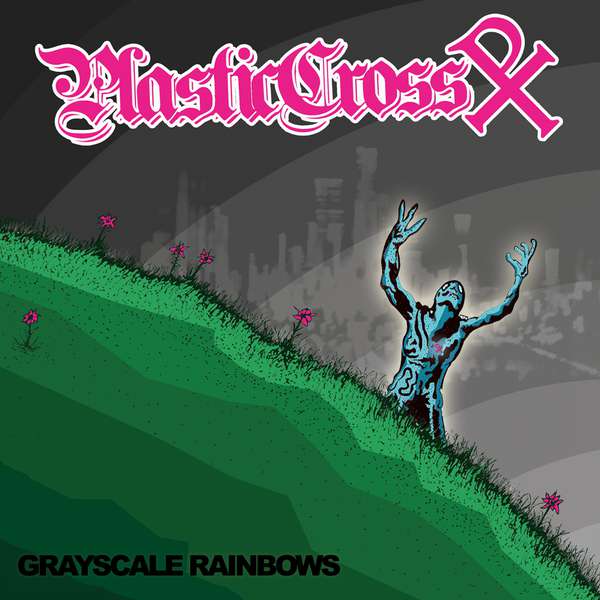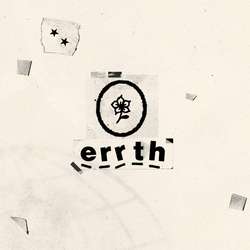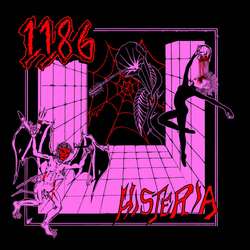Hub City Hardcore may not be on par with Greek mythology in terms of their incestuous relations, but with the debut of Plastic Cross, the New Brunswick, NJ brings yet another band of familiar faces playing a wholly new sound. The band is comprised of familiar Hub City Hardcore faces, with ex-members of The Scarlet Letter, Doc Hopper, Down in Flames, The Measure [SA] , and a bunch more.
Grayscale Rainbows is the band’s debut, on Don Giovanni Records, and brings a raging 1980s-schooled, circle pit hardcore that the band dubs “social science fiction.” The songs are short, loud, and fast, with charged, spitting lyrics, driving guitars, and a few scattered breakdowns to catch their breath. Meanwhile, the lyrics take a socio-political tone. The sci-fi angle comes tastefully, with the band utilizing varied effects and atmospheric tones in their songs but the sci-fi is no shtick. It’s done subtly and, more or less, in the background beyond the primary guitar/drum/bass/vocal forefront, giving an extra spacey tone but without overwhelming the listener with synthetic effects. What really drives this record is the shredding energy from guitarist Fid and the pounding of drummer Pete Hilton (since replaced by Chris Pierce). The rest adds depth.
Despite the self-branding, this record has strong roots in 1980s hardcore with a strong emphasis on musicianship and social focus. The band is tight and the songwriting is effective and varied, often shifting tempos within the songs and giving a complex and building sense of release. Craig Young doesn’t just spit vitriol, shout his feelings, or snidely drop a lyric—he does all three, seamlessly transitioning styles and the raging tempos pummel through. There are 18 tracks on Grayscale Rainbow, and only “Future Science” tops out over two minutes (2:02). The ability to mix styles and to suddenly throw a wrench in the tempo without losing the aggression or momentum is powerful, and its utilized in more songs than not, such as highlights like “Pet Rocks,” “Dead Can’t Dance,” and “Breaking Freedom.”
The band takes themselves seriously, with the lyrics coming across as a bit preaching-to-the-choir, and the more spoken word deliveries such as in “First World Problems” can get a bit heavy, but most of the record is forward-pushing energy that requires a lyric sheet to fully digest the social concerns—not because they’re complex or too in-depth, but because of the speed at which they’re delivered without letting up. Young is singing over the majority of the record and they don’t dink around with solos or lengthy bridges. I imagine the live show requires a lot of audience singing along, in part to give him time to breath.
The record stands well on its own, leaning on songwriting chops and up-tempo aggression instead of relying on an impressive list of ex-bands. The only weaker points are its length—while still a short play, the 18 tracks are a lot to digest at once, and that some of the lyrics can be a bit too direct. Still, the record is definitely a keeper.




